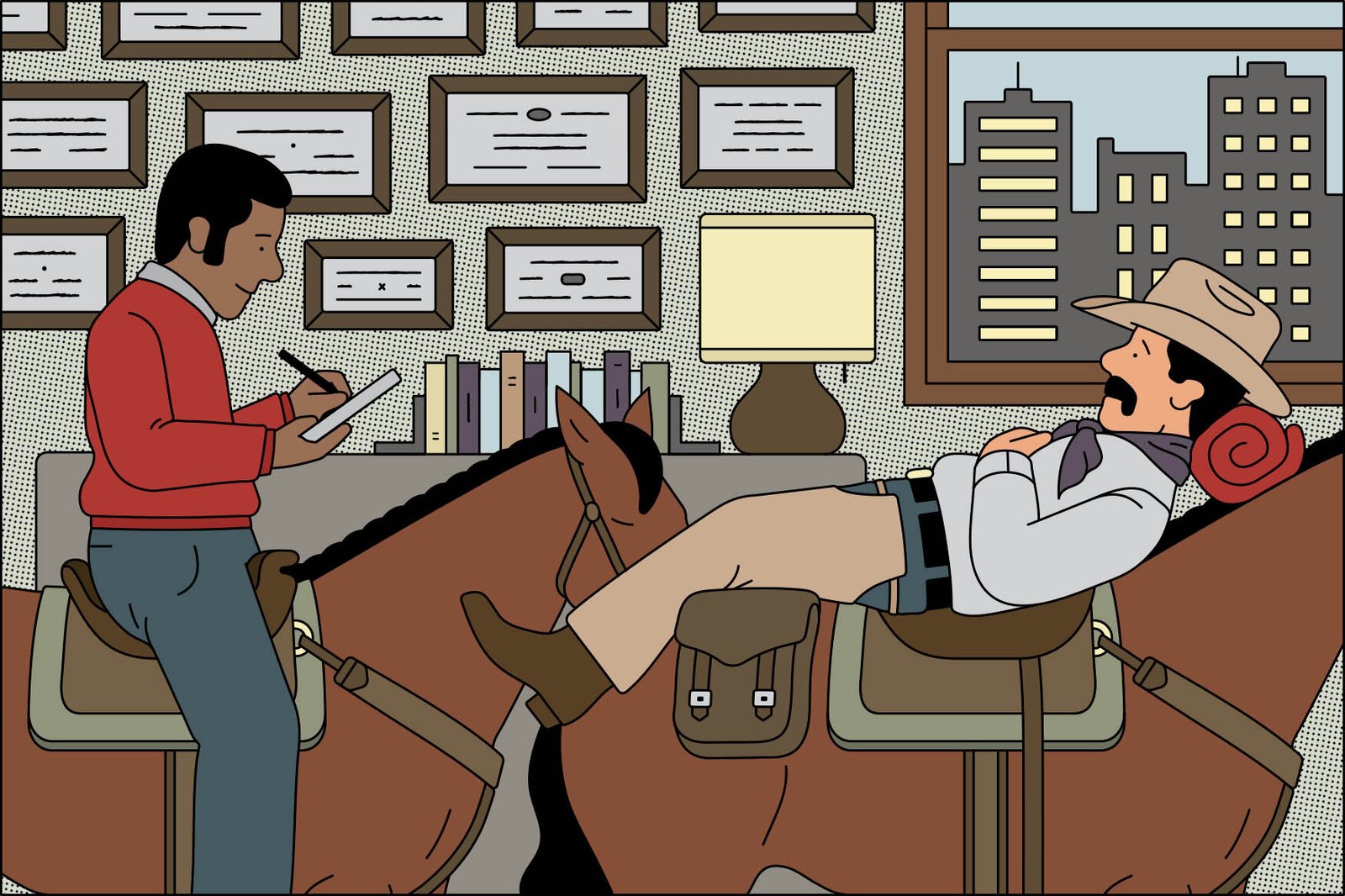
The Vital Role of Therapy in the Modern Man’s Journey
Introduction
In recent years, the stigma surrounding mental health has begun to lift, allowing more men to embrace the benefits of therapy. Today, therapy is not just a tool for managing crises but a crucial part of self-care and personal development for men of all ages and backgrounds.

therapy
Breaking the Stigma: Why Men are Seeking Therapy
Cultural Shifts
Historically, societal norms have often dictated that men should be strong, self-sufficient, and emotionally resilient. Seeking help for mental health issues was viewed as a sign of weakness, leading many men to avoid therapy or suppress their emotions. However, in recent years, there has been a significant cultural shift towards recognizing the importance of mental well-being for everyone, regardless of gender. This shift is driven by increased awareness campaigns, advocacy efforts, and personal stories shared by public figures and everyday individuals.
Men are now more likely to seek therapy as they realize that addressing mental health challenges proactively can lead to better overall health and quality of life. The acknowledgment that vulnerability and seeking help are signs of strength has played a crucial role in breaking down traditional stereotypes and encouraging men to prioritize their mental well-being.
Personal Growth
Therapy is increasingly viewed as a tool for personal growth and self-discovery among men. Beyond addressing specific mental health issues, therapy offers men a safe and non-judgmental space to explore their thoughts, feelings, and beliefs. This process allows men to gain deeper insights into themselves, their relationships, and their life goals.
Men who engage in therapy often report enhanced emotional intelligence, improved self-awareness, and better stress management skills. They learn to identify and challenge unhelpful thought patterns, develop healthier coping strategies, and cultivate resilience in the face of adversity. Therapy empowers men to make positive changes in their lives, fostering personal growth and fulfilment.
Why do some men still hesitate to seek therapy despite the cultural shift towards destigmatization?
Despite the progress in reducing stigma around mental health, some men may still hesitate to seek therapy due to several reasons:
Traditional Masculine Norms: Cultural expectations of masculinity often emphasise traits such as strength, self-sufficiency, and emotional restraint. Seeking help can be perceived as a sign of weakness or failure to meet these expectations.
Fear of Judgement: Men may fear being judged by others, including friends, family, or colleagues, for seeking therapy. Concerns about how therapy might affect their professional reputation or personal relationships can deter them from seeking help.
Lack of Awareness or Education: Some men may not fully understand what therapy entails or the potential benefits it can offer. This lack of awareness may lead to misconceptions about therapy being ineffective or unnecessary.
Coping Strategies: Men may have developed alternative coping strategies, such as substance use, workaholism, or avoidance of emotional issues, which temporarily alleviate symptoms but do not address underlying problems.
Addressing Mental Health Challenges
Stress and Pressure
Men frequently experience stress related to work, financial responsibilities, family dynamics, and societal expectations. Therapy provides a supportive environment for men to explore these stressors, understand their impact on their mental and physical health, and develop effective coping mechanisms.
Therapists work with men to identify sources of stress, recognize early warning signs of burnout, and implement stress-reduction techniques. By enhancing stress management skills, therapy enables men to navigate challenging situations more effectively and maintain a healthier work-life balance.
Emotional Expression
Many men struggle with expressing their emotions openly due to cultural conditioning, fear of vulnerability, or past experiences. Therapy encourages men to explore and articulate their feelings in a safe and accepting space. Through compassionate listening and therapeutic techniques, therapists help men develop greater emotional awareness and expression.
Men learn to identify and validate their emotions without judgement, which fosters deeper self-acceptance and interpersonal connections. Enhanced emotional expression in therapy can lead to improved communication skills, stronger relationships, and a greater sense of emotional well-being.
What specific challenges do therapists face when working with men, and how do they address them?
Therapists working with men may encounter several challenges, including:
Emotional Expression: Helping men feel comfortable expressing emotions that may have been suppressed due to societal expectations.
Communication Styles: Men may communicate differently, focusing more on problem-solving than emotional expression. Therapists adapt by encouraging open dialogue and validating men’s experiences.
Resistance to Vulnerability: Men may be reluctant to discuss vulnerabilities or admit struggles, requiring therapists to build trust gradually and create a non-judgmental environment.
Barriers to Help-Seeking: Addressing any stigma or reluctance men may have about seeking therapy, emphasising its benefits and normalising the process.
3. Relationships and Communication
Improving Communication
Effective communication is essential for building and maintaining healthy relationships. Therapy provides men with tools and strategies to enhance their communication skills, both personally and professionally.
Therapists help men practise active listening, assertiveness, and empathy, which are critical for resolving conflicts and fostering mutual understanding in relationships. By improving communication patterns, men can cultivate more meaningful connections with their partners, family members, friends, and colleagues.
Intimacy and Vulnerability
Therapy encourages men to embrace vulnerability as a strength rather than a weakness. Through therapeutic interventions, men learn to deepen their emotional intimacy and strengthen their relationships.
Therapists support men in exploring their fears and insecurities, building trust, and developing intimacy with others. By creating a safe space for vulnerability, therapy empowers men to cultivate authentic connections based on honesty, empathy, and mutual respect.
What are some effective strategies therapists use to help men develop healthier communication skills?
Therapists employ various strategies to help men improve communication skills:
Active Listening: Teaching men to listen attentively and empathetically, reflecting on what others are saying without interrupting.
Assertiveness Training: Encouraging men to express their thoughts, feelings, and needs clearly and respectfully.
Emotional Awareness Exercises: Helping men identify and articulate their emotions, enhancing self-awareness and emotional intelligence.
Role-Playing and Skill Practice: Engaging in role-plays or exercises to practise assertive communication and conflict resolution techniques.
What role can therapy play in helping men navigate major life transitions, such as career changes or relationship issues?
Therapy assists men in navigating major life transitions by:
Providing Emotional Support: Offering a safe space to process emotions and uncertainties related to changes in career or relationships.
Clarifying Goals and Values: Helping men align their actions with personal values and aspirations during times of transition.
Developing Coping Strategies: Teaching adaptive coping skills to manage stress, anxiety, and uncertainty associated with changes.
Improving Decision-Making: Supporting men in making informed decisions and exploring alternatives during transitions.
Strengthening Resilience: Building resilience to bounce back from setbacks and adapt to new circumstances effectively.
Career and Personal Fulfilment
Goal Setting
Therapy helps men clarify their personal values, strengths, and goals, both in their careers and personal lives. Therapists collaborate with men to identify their aspirations and develop actionable steps to achieve them.
By setting realistic and meaningful goals, men can enhance their motivation, productivity, and sense of fulfilment. Therapy equips men with strategies for overcoming obstacles, adapting to changes, and maintaining focus on their long-term objectives.
Work-Life Balance
Achieving a healthy work-life balance is essential for overall well-being and quality of life. Therapy supports men in setting boundaries, managing time effectively, and prioritising self-care.
Therapists help men recognize the signs of burnout and stress, implement self-care practices, and establish routines that promote balance and resilience. By fostering a sense of equilibrium between professional responsibilities and personal well-being, therapy enhances men’s overall satisfaction and fulfilment in life.
In what ways does therapy contribute to men’s overall well-being and personal fulfilment?
Therapy contributes to men’s well-being and fulfilment by:
Enhancing Self-Awareness: Helping men understand their thoughts, emotions, and behaviours more deeply.
Improving Coping Skills: Teaching practical strategies to manage stress, anxiety, and other mental health challenges.
Fostering Resilience: Building resilience to navigate life’s challenges and setbacks more effectively.
Supporting Goal Achievement: Clarifying personal and professional goals and developing strategies to achieve them.
Promoting Healthy Relationships: Improving communication skills and emotional expression, leading to more satisfying relationships.
Tools and Techniques: What Therapy Offers Men
Cognitive Behavioral Therapy (CBT)
CBT is a structured therapeutic approach that focuses on identifying and changing negative thought patterns and behaviours. It helps men develop practical skills for managing stress, anxiety, depression, and other mental health challenges.
In CBT, therapists collaborate with men to challenge distorted thinking, learn problem-solving strategies, and practise behavioural techniques that promote positive change. CBT equips men with tools they can apply in their daily lives to enhance resilience, improve mood regulation, and maintain long-term mental well-being.
Mindfulness and Meditation
Mindfulness practices, such as meditation and mindful breathing, cultivate present-moment awareness and relaxation. These techniques help men reduce stress, enhance focus, and improve emotional regulation.
Therapists teach men how to integrate mindfulness into their daily routines, fostering a sense of calm and clarity amidst life’s pressures. By practising mindfulness, men develop greater self-awareness, compassion for themselves and others, and resilience in the face of challenges.
How do different therapeutic approaches (like CBT, mindfulness, or psychodynamic therapy) benefit men differently?
Cognitive Behavioral Therapy (CBT): Focuses on changing negative thought patterns and behaviours, offering practical skills for managing stress, anxiety, and depression effectively.
Mindfulness-Based Approaches: Promote present-moment awareness and relaxation, helping men reduce stress, enhance emotional regulation, and improve overall well-being.
Psychodynamic Therapy: Explores unconscious patterns and past experiences that influence current behaviours and emotions, fostering deeper self-understanding and insight.